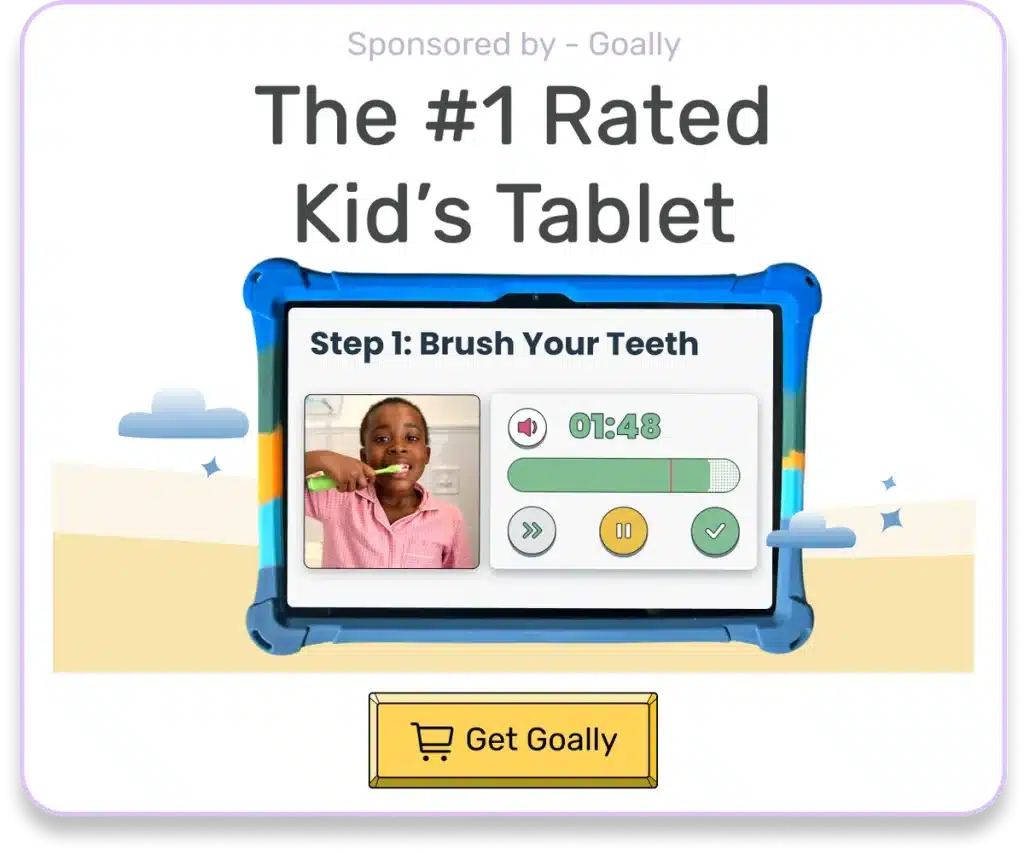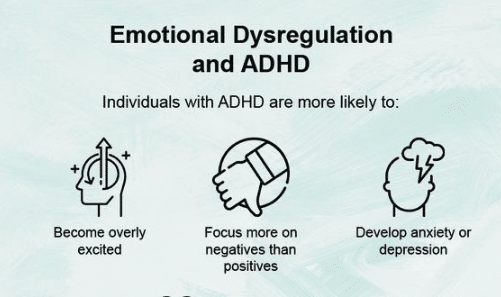ADHD is often associated with hyperactivity and impulsivity, but there’s another side to this neurodivergent condition that’s less talked about: ADHD emotional sensitivity. In this blog post, we’ll delve into the emotional aspects of ADHD, how they impact kids with thinking and learning differences, and what you can do to support your kid through their emotional journey. We’ll discuss strategies for managing emotions, fostering resilience, and creating a supportive environment for your neurodivergent child. So, let’s get started!
Table of Contents
ADHD Emotional Sensitivity: What’s Going On?
ADHD emotional sensitivity is characterized by intense emotions, mood swings, and difficulty regulating emotions. Kids with ADHD may experience:
- Heightened emotional reactions
- Quick mood changes
- Difficulty calming down after emotional outbursts
- Increased sensitivity to criticism or rejection

These emotional challenges stem from differences in the brain’s executive functioning, which is responsible for regulating emotions, planning, and organizing. Moreover, ADHD emotional sensitivity can exacerbate other ADHD symptoms, creating a cycle of emotional turmoil and frustration. But fear not! We have some helpful strategies to support your child through these challenges.
Strategies for Managing Emotions in Kids with ADHD
As a parent, you play a crucial role in helping your child navigate their emotional landscape. Here are some strategies to support your neurodivergent child:
1. Validate Their Feelings
First and foremost, acknowledge and validate your child’s emotions. Let them know that it’s okay to feel what they’re feeling and that their emotions are valid. This helps build trust and encourages open communication. For example, you might say, “I understand that you’re feeling upset right now, and that’s okay.”
2. Teach Emotional Regulation Skills
Teach your child techniques to manage their emotions, such as deep breathing, mindfulness, and visualization. Practice these skills together and encourage your child to use them when they’re feeling overwhelmed. Goally can be a helpful tool in teaching and reinforcing these emotional regulation skills.
- Deep breathing: Have your child take slow, deep breaths, focusing on their breath as it goes in and out.
- Mindfulness: Encourage your child to focus on the present moment, paying attention to their thoughts, feelings, and bodily sensations without judgment.
- Visualization: Guide your child through imagining a calming, peaceful scene, such as a beach or a forest.

Read More: Mindfulness Meditation
3. Create a Calm and Structured Environment
Establish routines and structure to help your child feel secure and in control. A predictable environment can reduce anxiety and emotional outbursts. Goally can assist in creating routines and structure for your kid, making it easier for them to navigate their day-to-day life.
| Morning Routine | After School Routine | Bedtime Routine |
|---|---|---|
| Wake up | Snack time | Brush teeth |
| Get dressed | Homework | Read a book |
| Breakfast | Playtime | Bedtime |
4. Offer Positive Reinforcement
Focus on your child’s strengths and celebrate their successes. Positive reinforcement can boost self-esteem and help your child feel more confident in managing their emotions. For instance, praise your child for using their emotional regulation skills or for handling a difficult situation well.
5. Seek Professional Help if Needed
If your child’s emotional sensitivity is causing significant distress or impacting their daily life, consider seeking the help of a mental health professional who specializes in ADHD. They can provide additional support and guidance tailored to your child’s unique needs.
Fostering Resilience in Neurodivergent Kids
Resilience is the ability to bounce back from challenges and adversity. To foster resilience in your child, consider the following:
1. Encourage Problem-Solving
Help your child develop problem-solving skills by guiding them through difficult situations and encouraging them to find solutions. This empowers them to face challenges with confidence. For example, if your kid is struggling with a school project, brainstorm ideas together and help them create a plan of action.
2. Promote a Growth Mindset
Teach your child that setbacks and failures are opportunities for growth and learning. This mindset can help them persevere through challenges and develop resilience. For instance, if your child is disappointed by a low test score, discuss what they can learn from the experience and how they can improve next time.
3. Nurture a Supportive Social Network
Encourage your child to build strong relationships with friends, family, and mentors who can provide emotional support and understanding. This can help your kid feel more connected and supported in their journey.

"We purchased the goally app for my son and LOVE IT! We love that it has visuals, behavioral rewards, AND the talker all in one. " — Amanda Learn more →
4. Model Resilience
Show your child how you handle challenges and setbacks with grace and determination. Your example can inspire them to develop their own resilience. For example, share stories of times when you faced difficulties and how you overcame them.
Creating a Supportive Environment for Kids with ADHD Emotional Sensitivity
Lastly, it’s essential to create a supportive environment for your neurodivergent child. Here are some tips:
1. Educate Yourself and Others
Learn about ADHD emotional sensitivity and share this information with family members, teachers, and friends. This can help create a more understanding and supportive network for your child.
2. Advocate for Your Child
Speak up for your child’s needs and work with their school to ensure they receive appropriate accommodations and support. This can make a big difference in their educational experience and overall well-being.
3. Connect with Other Parents
Join support groups or online communities to connect with other parents of neurodivergent kids. Sharing experiences and advice can be invaluable in your journey. You might learn new strategies, gain insights, and find comfort in knowing you’re not alone.
Try Goally For Your Child With ADHD
Goally helps kids with ADHD stay focused and build skills. Unlike a Kindle or an iPad that kids get easily distracted on, Goally has no YouTube, no social media, no web browser, and especially no ads.
Goally uses game play as a points-based motivator for your kiddo with ADHD and helps them learn emotional regulation skills. It’s simple to set up and has an expert-informed design.

Embrace the Journey
ADHD emotional sensitivity can be challenging for both kids and parents. However, with understanding, support, and the right strategies, you can help your child navigate their emotions and thrive. Remember, you’re not alone in this journey, and there’s a whole community of parents and professionals ready to help you and your neurodivergent child. So, let’s work together to support our kids and celebrate their unique strengths!
FAQ’s About ADHD Emotional Sensitivity
What is emotional sensitivity in children with ADHD? Emotional sensitivity in children with ADHD refers to their heightened responsiveness to emotions and stimuli, often leading to intense reactions. How can visual schedules benefit children with ADHD and emotional sensitivity? Visual schedules provide a structured routine, helping children with ADHD manage their day, reduce anxiety, and improve emotional regulation. Are there any recommended emotional regulation apps for kids with ADHD? Yes, apps like "Emotion Regulation Toolkit" and "Calm Counter" can help children with ADHD learn self-regulation and emotional control. Why are rewards effective for children with ADHD and emotional sensitivity? Rewards provide positive reinforcement, motivating children with ADHD to stay on task and manage their emotions more effectively.
This post was originally published on 06/08/2023. It was updated on 10/26/2023.

Goally
We help parents teach their kids life skills, like doing bedtime and morning independently. Backed by science, we incorporate evidence-based practices and expert-informed designs in all of our apps and content.






